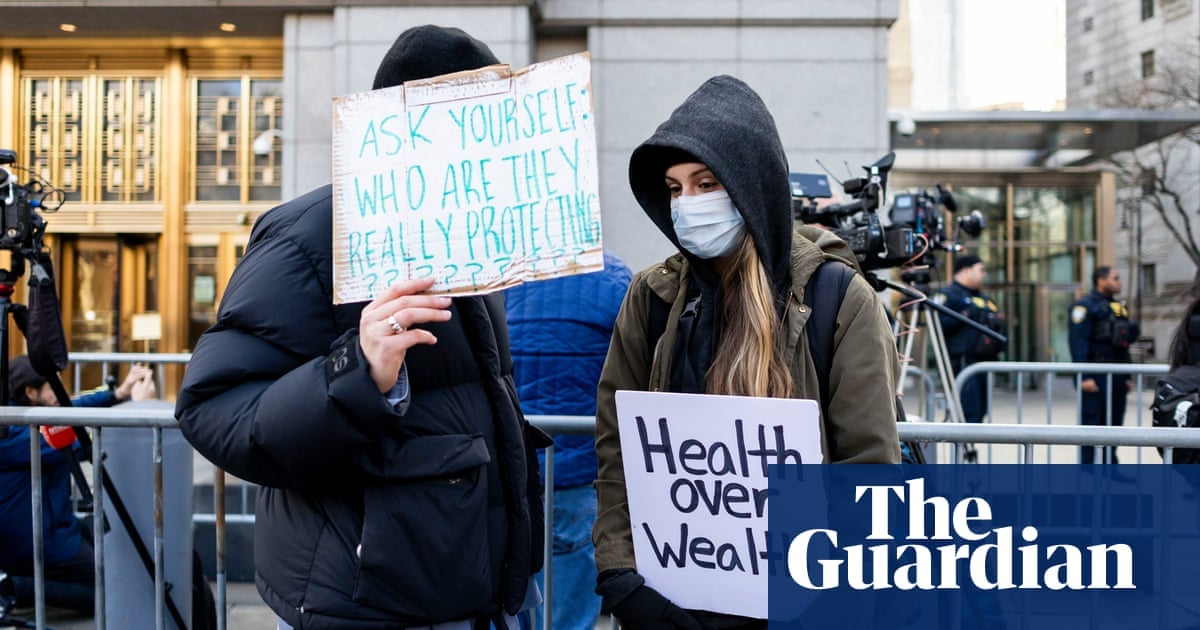Summary
The killing of UnitedHealthcare CEO Brian Thompson has reignited debates over the U.S. healthcare system, with Americans sharing stories of denial, delays, and exorbitant costs despite having insurance.
Many report fighting insurers for coverage of essential treatments, facing hidden costs, and taking drastic steps like career changes to secure health insurance.
Critics blame corporate greed for worsening access and affordability, while others note the system’s complexity discourages seeking care.
Though some find employer-provided plans satisfactory, the overall system is described as profit-driven and increasingly inaccessible, leaving many financially strained or avoiding medical help altogether.



Well yes and no. Healthcare has always been restricted in the US, especially through racism and sexism, but the dystopian insurance shit didn’t really come into force until the mid 90s.
I had a “crazy aunt” who could never get off her soapbox about how HMOs were going to ruin healthcare in the US. Looking back, she was a true “walk the walk” sort of hippy and I wish everyone in the family had taken her more seriously about various things. We’re out of touch these days, but I often remember how right she was.
The truth tellers often get stoned, must be something about human condition. Normies larp talking points they hear on teevee so the truth teller sounds either retarded or a lunatic.
Then years later some of us realize they were actually on point and it hits like a brick wall.
If you drop her a note telling her that, it’ll almost certainly be very appreciated.
One of “Obamacare’s” selling points was to outlaw effectively-fake health insurance plans that were written upfront not to cover any actual care. Those policies had been around a lot longer than the mid-90s, but most employers were smart enough to avoid them, so they were really only a problem for poorer people buying individual insurance, and who cares about them?
My guess is that the old fake-insurance providers are the ones who figured out how to get around the ACA coverage requirements in ways that aren’t technically violations. Or figured out that no one was going to enforce penalties for those violations. Those practices have now crept into ‘mainstream’ providers, but it sure looks like no one cared until a CEO died.
This is the core business model for any sufficiently large legal for profit entity. They know they get benefit of the doubt from the state regulators and law enforcement so they will push that line until it become common practice and then push it again. Enshitification is how looks on consumer side.
I worked for maybe a decade in Investment Banking back in the 2000s and early 2010s and one thing I realized after a couple of years in the Industry was that fines for lawbreaking were really just another business risk and calculated into the Profit & Loss estimations.
Looking around I would say that, at least amongst large companies, that practice is now the general rule in just about all industries - if the only penalties are monetary and paid by the company, individuals controlling budgets within companies will treat fines for regulatory non-compliance or even crime just like they treat any other business risk.
Make people personally liable for crime committed for the company (including using criminal association laws against companies) and fines a percentage of a company’s revenue (like the EU does for certain modern pan-European legislation) and most of these things would stop - there would be no need of Luigi doing what he did if Brian Thompson and those like him would’ve gotten jail time for Manslaughter if even just a single case of people being fraudulently denied life-saving treatment and dying could be shown to have been the result of his policies in the company.
Deff neee criminal liability to be attached to some of these “business” decisions but even the fines were actually enforced it would be a step in the right direction.
Currently most of stuff just doesn’t even get enforced by any government body. From corporate perspective government are limp dock idiots. Why bother follow the law.
I dont think it was always bene this bad but surely during all of my working life and getting worse.